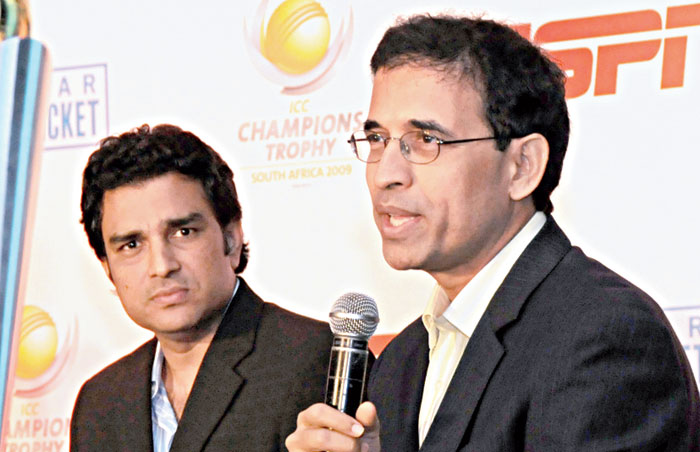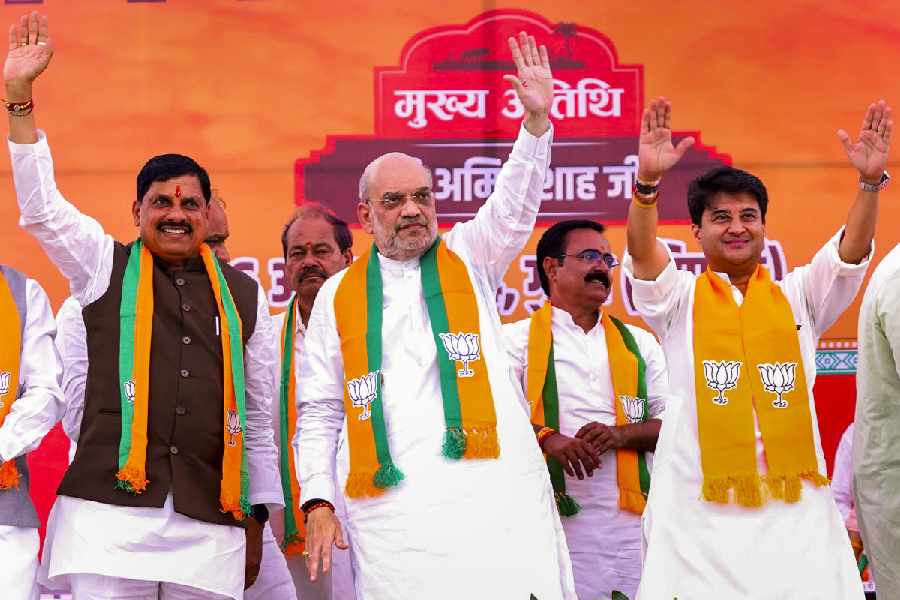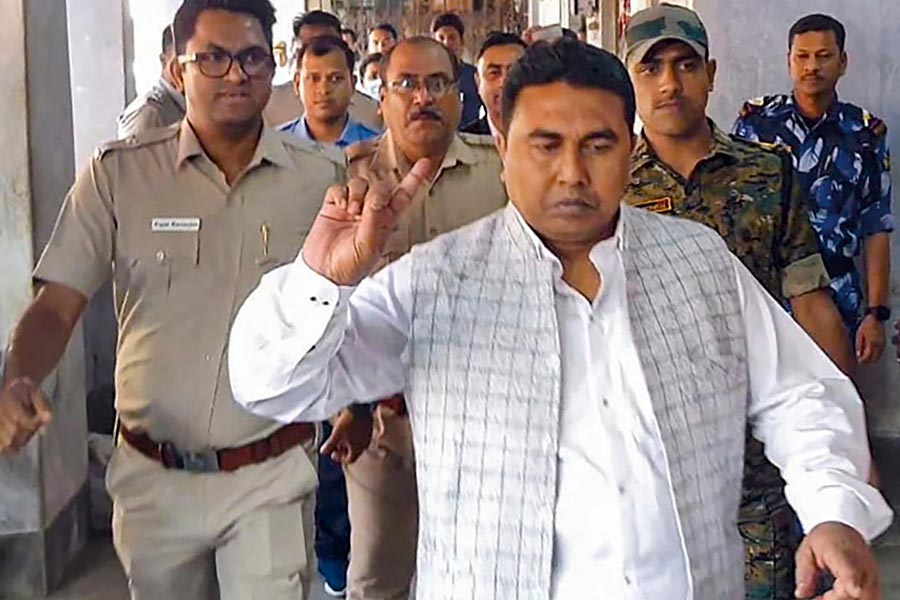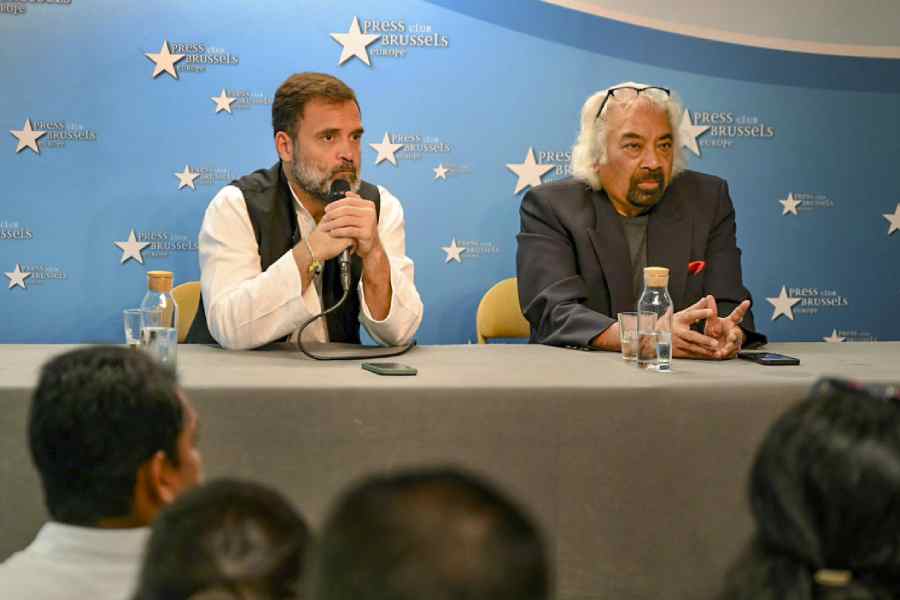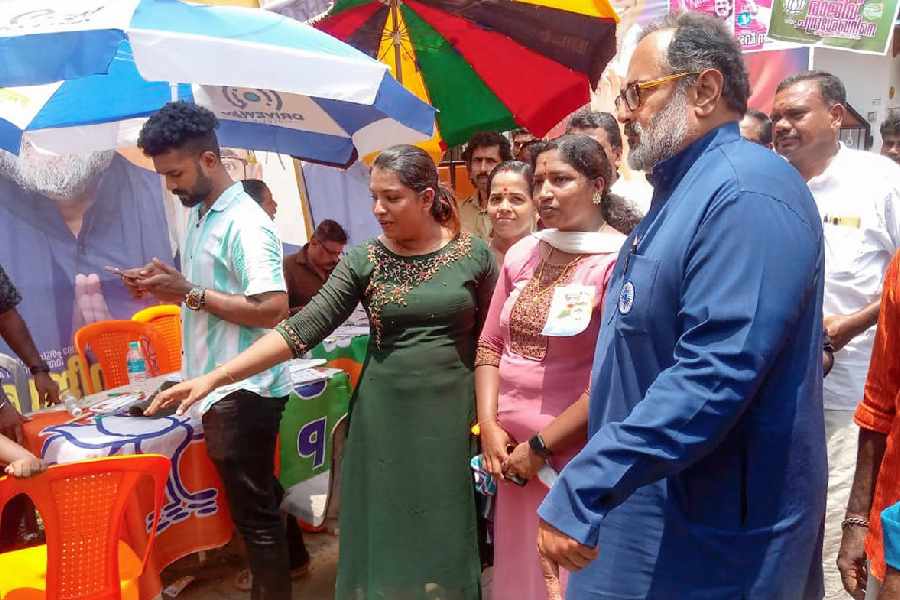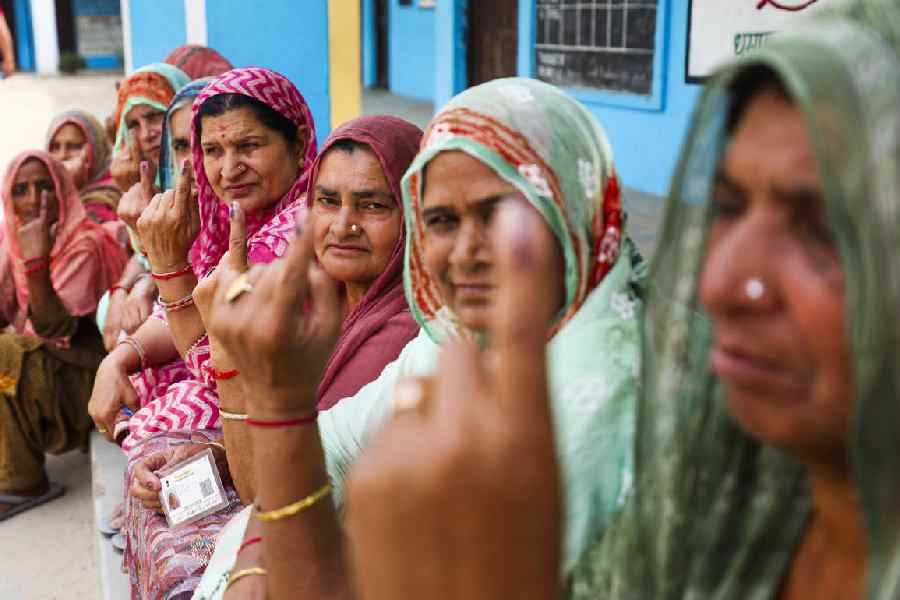Sanjay Manjrekar and Harsha Bhogle had an on-air disagreement about pink-ball, day-night Test cricket during the recent Test at the Eden Gardens. India won in quick time and more than one Bangladeshi batsman was hit by the short ball. There was some discussion in the media of the new concussion protocol. The memory of Phillip Hughes, who died after being struck by a bouncer in November 2014, stalks cricket and its public as it should.
In this context, Harsha Bhogle suggested during the closing stages of the match that any post-mortem of this first day-night Test ought to solicit the views of its batsmen on the visibility of the pink ball. Manjrekar, who was commentating alongside Bhogle at the time, disagreed. He thought the quality of the slip catches taken during the match ruled out visibility as a factor. The issue, according to Manjrekar, was the texture of the pink ball and the way it came off the pitch. So far, so normal: this was a straightforward disagreement.
When Bhogle persisted, making the reasonable point that there could be no harm in asking batsmen who had actually experienced the conditions, Manjrekar pulled rank. Possibly miffed that Bhogle hadn’t given his point about well-taken slip catches its due, he suggested that Bhogle might need to ask such questions but player-commentators who had played the game at the highest level for years “… could get a fair idea of what is happening out there…” by simply watching. This followed close on the heels of Manjrekar saying that Bhogle’s position amounted to asking others everything and saying nothing from the commentary box.
Discount for a moment the professional discourtesy of Manjrekar’s responses. Given that commentary in India is gelded by the contractual restrictions the BCCI imposes, you could even argue that robust give-and-take between otherwise defanged commentators enlivens proceedings. What was interesting about Manjrekar’s position was its dogmatism and willed ignorance because there was no shortage of cricketing professionals who were publicly concerned about the sighting challenges that the pink ball posed.
On the eve of the Test match, Wriddhiman Saha had said that a “... slightly discoloured pink ball against a white sightscreen in the twilight period might be difficult to pick.” Saha was one of the two players (the other being Mohammed Shami) who had actually played a pink-ball match before in a local day-night tournament played at the same ground in 2016. He also said that it was possible that wicketkeepers and slip fielders might lose sight of the pink ball as it left the hand of the bowler for a fraction of a second. After the match, Cheteshwar Pujara was quoted in a newspaper saying, “I thought [the] light and pink ball had a role to play [in batsmen getting hit]. As a batsman, it’s not easy to pick the [short] ball especially... The... pace our fast bowlers have, it’s not easy.” Simon Taufel, the experienced Australian umpire, was quoted saying that the twilight period between sunshine and artificial lighting made it “… challenging for the batsmen to pick the ball”.
I suspect that Manjrekar in repose might concede that Bhogle had a point; the real issue raised by this little spat is the place of the professional commentator who isn’t a top cricketer in ball-by-ball coverage. Bhogle is pretty much the only commentator on the Indian circuit who isn’t an ex-international. (I don’t include in this generalization Indian radio commentary, which All India Radio funds like a Victorian poorhouse and which no one takes seriously). In a bubble where playing experience is seen as the necessary condition for knowledgeable commentary, being contradicted by someone who hasn’t experienced the rigours of international cricket must seem like a provocation.
The irony is that Bhogle and Manjrekar are actually on the same side of the argument. Both of them are rooting for the value and authenticity of on-field experience. Manjrekar is holding out for the insight born of a dozen years of top-tier cricket while Bhogle is keen to tap into the experience of pink-ball cricket of the players out on the pitch. This isn’t an argument that Manjrekar can win. In the matter of experience, recentness trumps oldness every day of the week. The logical culmination, the reductio ad absurdum of the argument from experience, is miked-up players in the middle talking directly to cricket’s public. We’ve seen this happen in IPL matches and Test commentary shouldn’t go there. Actors addressing their audiences by talking into camera is one thing; sportsmen doing the same is quite another: between the spectator and the spectacle, a crucial separateness is lost.
Anyone who has heard John Arlott on Test Match Special knows the value of commentary that grows out of long watching and wisdom. Test Match Special resolved the tension between virtuoso commentary and playing expertise through a division of labour. The non-playing types did the ball-by-ball commentary and the ex-player (Trevor Bailey) did the expert commentary between overs. In the present day when the numbers are reversed and the division of labour between description and expertise (especially with television commentary) is virtually dissolved, the role of the non-playing commentator has to be re-imagined.
Fluency and the experience of watching decades of cricket aren’t enough anymore. Along with these credentials an acquaintance with facts and figures and data would help. Andy Zaltzman, who is very funny, fanatically enthusiastic about cricket, and hugely informed, was recently used as a scorer by Test Match Special. It would be useful if someone like him was used as a genial Everyman to run a literate and numerate eye over proceedings. The argument between Manjrekar and Bhogle might have generated more light and less heat if one of them had cited or considered the experience of teams that had already played day-night Test cricket elsewhere.
Commentators who have been international players are indispensable to cricket commentary. But with very few exceptions, their expertise is confined to craft, not context. I’d rather have a first-rate journalist on air setting Pujara in his cricketing context, Saurashtra, or a numerate commentator explaining run-inflation in cricket than Laxman Sivaramakrishnan or Ravi Shastri generating cricketing clichés like unstoppable bots. Playing expertise can and should be leavened by a knowledge of things both within and beyond the boundary.
mukulkesavan@hotmail.com

